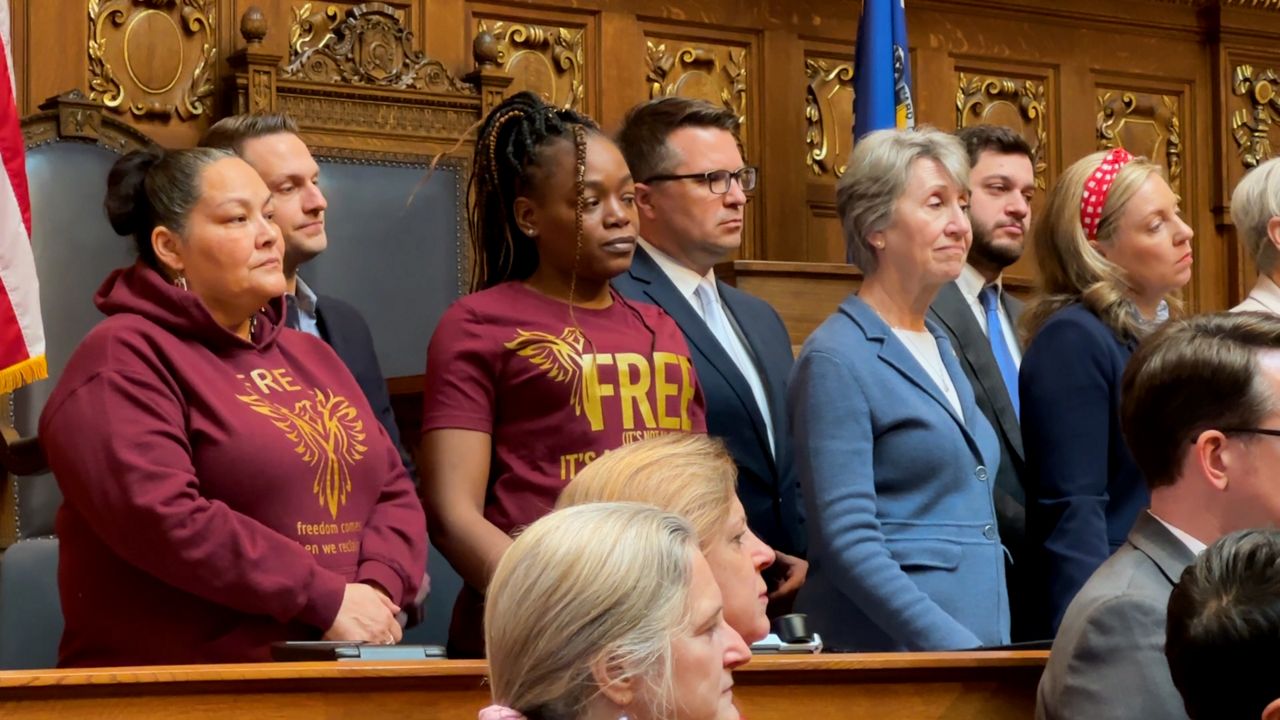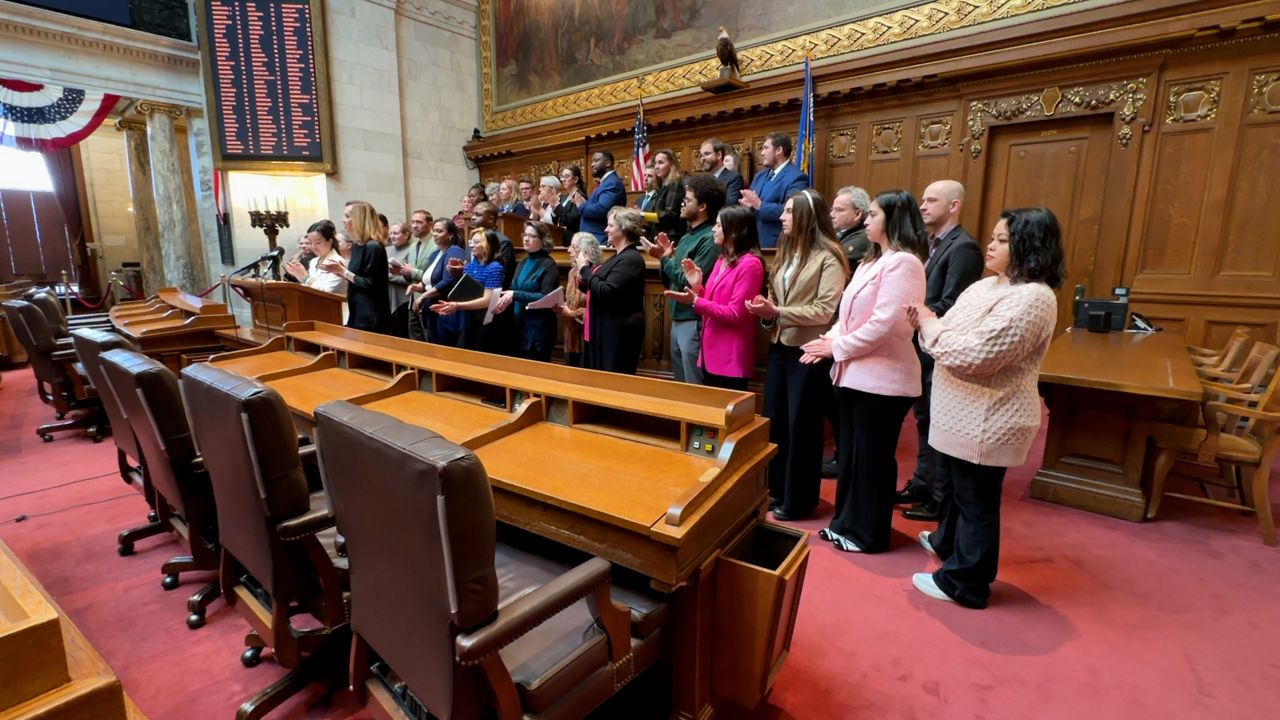MADISON, Wis. — Democrats have renewed their push for what they call an "Economic Justice Bill of Rights" on behalf of Wisconsinites.
The joint resolution is hardly a new effort, as it was first introduced in March of 2021 and again in 2022.
In a lot of ways, the authors said Gov. Tony Evers most recent budget proposal reflects their framework for future progressive policies, including well-funded public education, affordable health care and even improved infrastructure.
“Relaunching the Economic Justice Bill of Rights for all Wisconsinites is truly, again, about making a Wisconsin that works for everyone,” State Rep. Francesca Hong, D-Madison, said.
Gathered alongside community leaders Thursday on the floor of the Assembly, Democrats said their effort is about continuing the conversation, especially on behalf of groups hit hardest by economic swings.

“By addressing the economic issues, we address the roots of the problem and not the symptoms,” State Rep. Kalan Haywood, D-Milwaukee, explained.
Democrats believe if economic problems were solved, it would provide a path forward for everyone in Wisconsin.
The proposal calls for the following 10 rights:
- Dignity at work and a living wage
- Adequate funding for public schools and child care
- Protecting public and private unions and collective bargaining
- Affordable and accessible health care
- A healthy environment
- Decent and sustainable infrastructure
- Safe and affordable housing and broadband
- Equitable access to capital
- Restorative justice
- Participatory civic life and self-determination
“We’re not asking to stack the deck one way or another," State Sen. Melissa Agard, D-Madison, added. "We’re asking for equity, we’re asking for fairness.”
However, unlike previous attempts, lawmakers on the left have a projected record-breaking surplus to point to this time around.

“We live in the wealthiest country on the planet, and Wisconsin has an over $7 billion surplus,” State Rep. Kristina Shelton, D-Green Bay, said. “There is enough to make sure that everyone has what they need for the basic necessities of life.”
Republicans, who control the Legislature, have not adopted previous versions of the joint resolution and are not likely to do so this time either.
When asked about bipartisanship, Democrats said they are always open to conversations across the aisle. However, so far, no Republicans have come forward.


